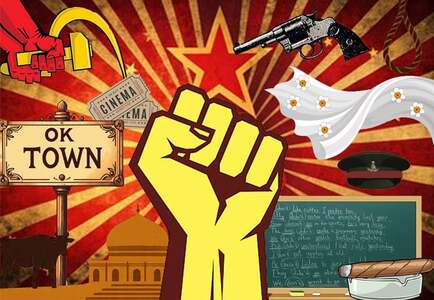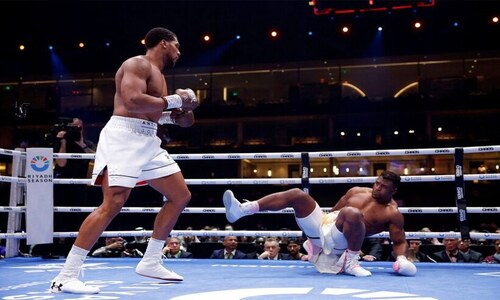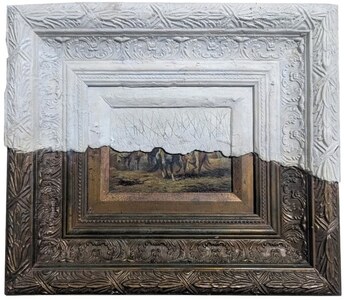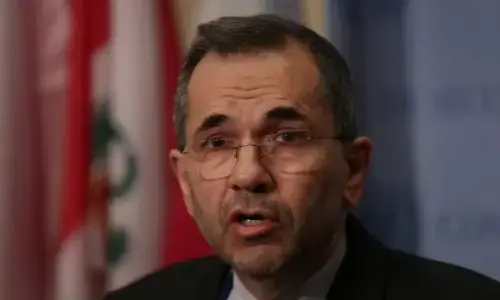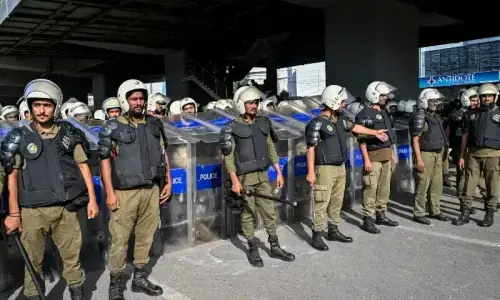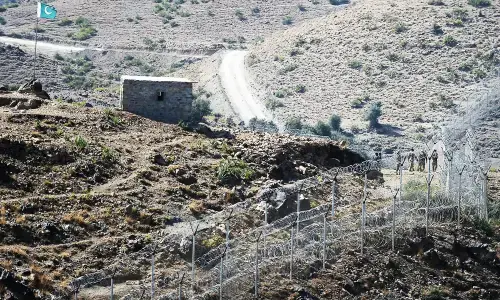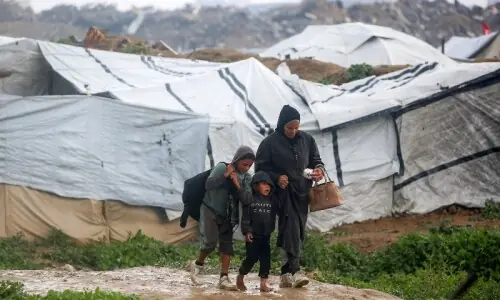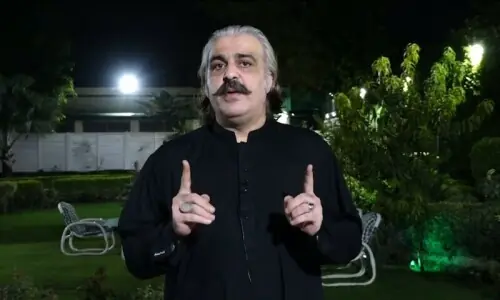
Short in stature and sporting a black moustache and hair, Abdul Hayee Baloch’s rise as a young students’ leader in the realm of Baloch politics, was not sudden.
Like his fellow Baloch brethren and other student leaders, he continued to agitate and struggle for the dissolution of the ‘One-Unit’ formed in 1955. Throughout the era of former dictator Gen Mohammad Ayub Khan (1958-69), he struggled for Baloch students’ scholarships and rights. As time passed, Dr Hayee’s hair and moustache turned white, but his struggle for Baloch rights remained youthful and spirited till his last breath.
Born in 1945, Hayee matriculated in 1962 from Bhag, his little hometown in Kachhi district in Balochistan. After his FSc from Khuzdar, he moved to Karachi where, as a bright student, he got admission in Dow Medical College.
Being young did not deter Hayee from politics. He rose to prominence when he became the first founding president of the Baloch Students Organisation (BSO), a leftist group formed during the Cold War era — in 1967. Ever since its formation, the BSO has continued to play a pivotal role in Baloch nationalist politics in Balochistan, as well as in Baloch-dominated parts of Karachi, including Lyari.
Veteran politician Dr Abdul Hayee Baloch, who died in a road accident on February 25, will be remembered for being a committed Baloch leader, a true progressive, and yet a humble man
With BSO’s influence growing as an emerging centre of Baloch nationalist politics — it worked closely with Baloch leaders in the now-defunct National Awami Party (NAP), a left-wing political party in the then West and East Pakistan — Abdul Hayee was given a National Assembly seat to contest from Balochistan while he was still a medical student. Although he was never rich nor the son of a tribal chief, he courageously led the Baloch youth.
It was his astounding win against Prince Yahya Khan — son of Mir Ahmad Yar Khan, the last ruler of the Kalat state — that the incredulous media finally took note of Hayee, the son of a peasant and a pauper. He had clinched the seat despite there being only four National Assembly seats at the time for Balochistan, the other three seats being won by NAP. The rest is history.
Throughout his life span of 77 years, Dr Hayee’s sole objective was the struggle for rights. After becoming a member of the National Assembly, he did not sign the 1973 Constitution of Pakistan along with Nawab Khair Bakhsh Marri. “Why?” I asked him a few years ago.
“Do you know?” he replied, as he recalled his reason for not signing, “that Pakistan is a multinational state, of different ethnicities, each with its own separate history, culture, and language, etc.? Since the National Assembly was not willing to accept this fact, I refused to sign. The constitution of the state must contain the rights of all nations/ethnicities living in its territory.”

Dr Hayee devoted his life to strive for the rights of all the ethnicities inhabiting Pakistan, a struggle that often led him to being put behind bars. He always questioned why the state of Pakistan shies away from granting rights to ethnic groups, especially the weaker ones, including the Baloch. According to him, Pakistan’s history consisted of 70-odd years, whereas ethnic groups living in the country had a much older history.
Even though his words fell on deaf ears in the corridors of power, he did not flinch from his demands for a democratic Pakistan in its truest sense, where all the federating units would be equal and empowered.
Dr Hayee breathed his last in a road accident on the Multan-Sukkur motorway in Punjab, after attending a public meeting in Hyderabad, Sindh. He frequently attended public meetings of ethnic groups belonging to different ethnicities in the country, as an expression of solidarity with them.
Dr Hayee remained a people’s leader, a humble man who mostly commuted on foot, his eyes downcast, and owned neither a car nor a motorcycle. For longer commutes, he would hitch rides with strangers. A resident of Quetta claims to have often seen him pillion-riding on a bicycle, from the bazaar to his home on Sariab Road, Quetta.
He would greet both strangers and people he knew first, instead of waiting for them to greet him. When he met people, he would join his palms together out of respect before he shook hands with them.
It is said that the work of a critic is easy. And there was no dearth of critics who knew Dr Hayee for all the wrong reasons. Once, a critic of his claimed to me that, from being the son of a peasant, Dr Hayee had become a mini-feudal from Kachhi district, where he owned hundreds of acres of land, and property on Quetta’s Sariab Road, but that he still chose to hypocritically project himself as a malang [derwish]. If true, Dr Hayee certainly did not ostensibly enjoy the fruits of the money he allegedly accumulated.
Others would criticise Dr Hayee’s political ideas as being outdated or redundant. They would say that, like a parrot, he would continue to talk about Baloch rights, even after they had been given all their rights. Given the situation in Balochistan, this critique seems to stem more from jealousy at the respect Dr Hayee commanded from Baloch society.
Other than being elected as an MNA, Dr Hayee was also a senator in the 1990s. Throughout his political career, he joined and remained president of many Balochistan-based political parties, including the Pakistan National Party of Mir Ghaus Bakhsh Bizenjo and the Balochistan National Movement. He also formed the Balochistan National Youth Movement in 1987, and later headed the National Party (NP) in 2004. In 2018, after developing differences with NP leaders, Dr Hayee formed a new political party, the National Democratic Party.
A line from a Baloch poem titled Ustumane sa’ir [People’s Poet] by the late Baloch poet Gul Khan Naseer Mengal — who proclaimed to be ‘the people’s poet’ in one of his poems and whose poetry reflects his progressive nature and socialist ideals — expressed Naseer’s empathy towards the oppressed and the poor.
Interestingly, the translated line which follows, also aptly sums up the life of Dr Abdul Hayee Baloch: “I will go weeping and laughing with the poor.”
The writer is a member of staff.
He tweets @Akbar_notezai
Published in Dawn, EOS, March 13th, 2022

